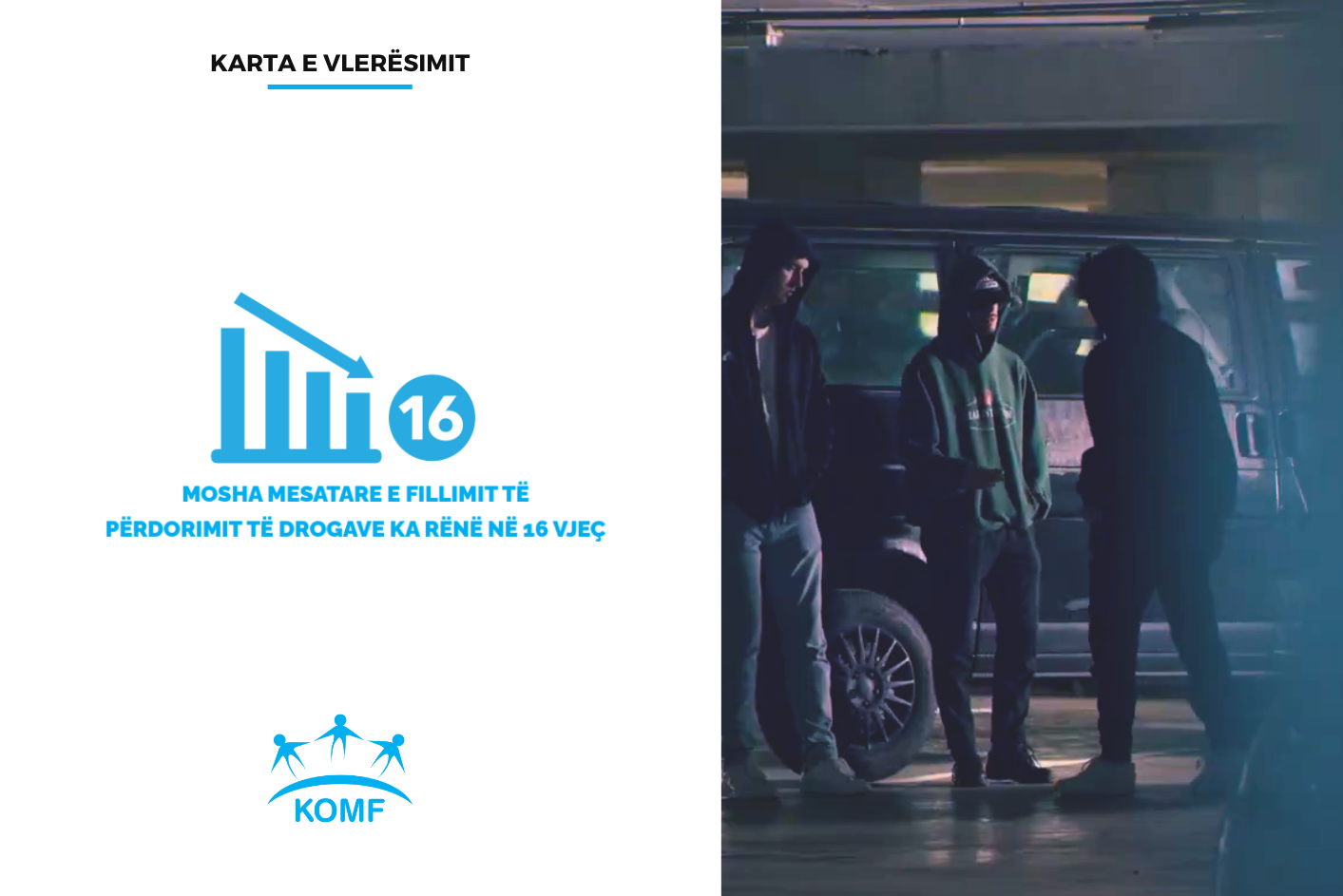
Lack of services for children victims of drug abuse
Kosovo faces numerous challenges in prevention and treatment of children victims of drug abuse. In the recent years, it is estimated that the total number of users has exceeded 30,000 users for the first time, children and teenagers continue to be part of this number of users more and more each year.
Based on the database of the Organization Labyrinth, the average age of starting drug use has dropped from 18 in 2018 to 16, in the latest period. Labyrinth Center is the only organization licensed in Kosovo by the Ministry of Health, for the provision of rehabilitation services for children and adults drug users.
It is disquieting that there is an increase of drug use among young people. The average age of drugs users is around 27 years old, indicating that this age group is mostly affected. According to Kosovo Police during 2022, there were 56 children from the age group 14 – 18 (55 males and 1 female, where the youngest age registered among users was 14 years old, 1 person), who were charged with the criminal offense “Unauthorized purchase, possession, sale and distribution of narcotics, psychotropic and analogues” from the Article 267 of the Criminal Code of the Republic of Kosovo, and the criminal offense “Unauthorized possession of narcotics, psychotropic substances or analogues”, from Article 269.
Reasons why children start using drugs are many, including the availability of drugs, early childhood trauma, lack of information on dangers of drug use, social pressure and curiosity to try new things, etc.
Our country is not yet providing structured and sustainable preventive services and programs which are more than necessary, having in mind growing trends of drug use by children and adolescents. Kosovo Police is exception to this issue, as it has an annual program of lectures on the prevention and awareness of several occurrences, which includes the topic related to prevention of use of narcotic substances. Kosovo does not provide sufficient accessible services for the identification of children that are victims of drug abuse. There is a lack of services and mobile teams in the community, that would enable testing and identification of possible cases of children using narcotic substances.
Kosovo does not offer special rehabilitation services for children victims of drug abuse. The existing services are provided within the treatment of adults that use narcotics. The Psychiatric Clinic at the University Clinical Center of Kosovo (UCCK), has improvised a separated ward to treat addiction, but this ward is dedicated for adult patients, although it also treats children since there is no other facility available or a specialized ward for children. This ward is not suitable for children, it is not friendly and doesn’t constitute a safe environment for them. Health treatment at UCCK is based on detoxification programs, where medicines from the List of Essential Medicines are used. In 2022, this department treated 7 child users under the age of 18.
In general, professionals face great challenges in treating children that are victims of drug abuse. They do not have the necessary resources, including the multidisciplinary teams and the specialized wards for children, to implement specialized rehabilitation plans and programs. Professionals do not have the necessary resources to empower parents or guardians in treating and supporting their children that are victims of drug abuse.
Also, another system shortcoming regards the lack of accurate statistics at national level, on the number of children drug users.
Recommendations:
- Define measures and programs for the prevention of drug use by children. Organize mobile teams in community to identify, test and support cases of children victims of drug abuse;
- Strengthen the treatment and rehabilitation services within the University Clinical Center of Kosovo and regional hospitals by establishing specific units or specialized centers only for drug-using children. These units should provide friendly and safe environments for the treatment of drug-using children;
- Prepare parent empowerment programs in order to increase parents’ capacities for care and support of children during rehabilitation and reintegration;
- Establish sustainable mechanisms for data collection at municipal and central level in order to generate accurate and sustainable data on the number of children that are victims of drug abuse, their age, economic status, types of drugs, etc. These data would help in a more adequate planning of relevant programs and services.

Recent Comments